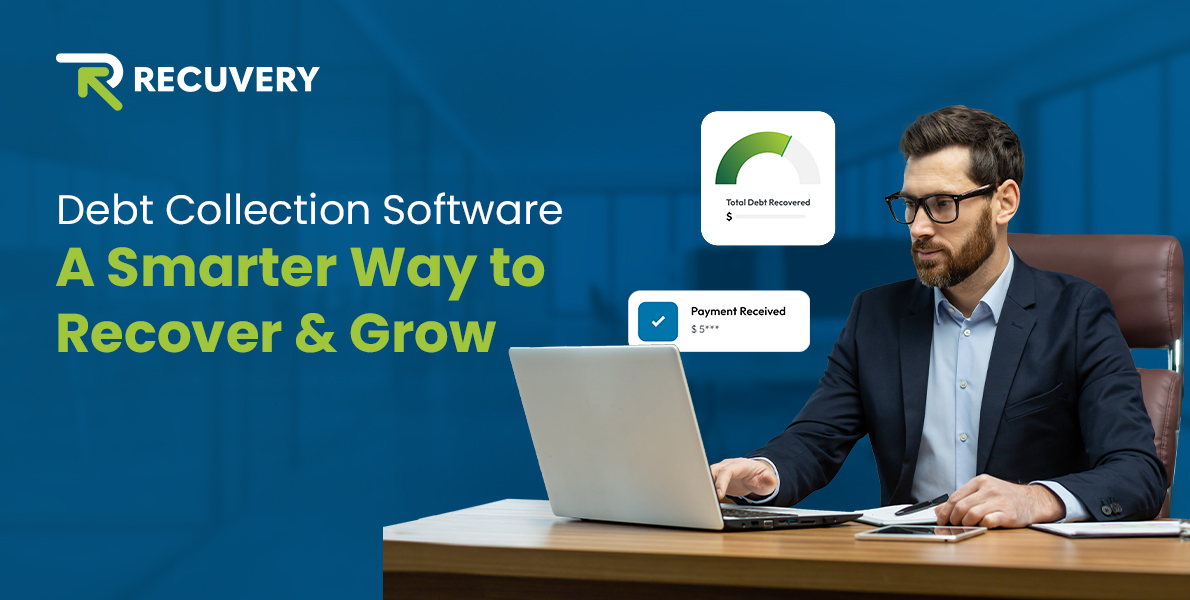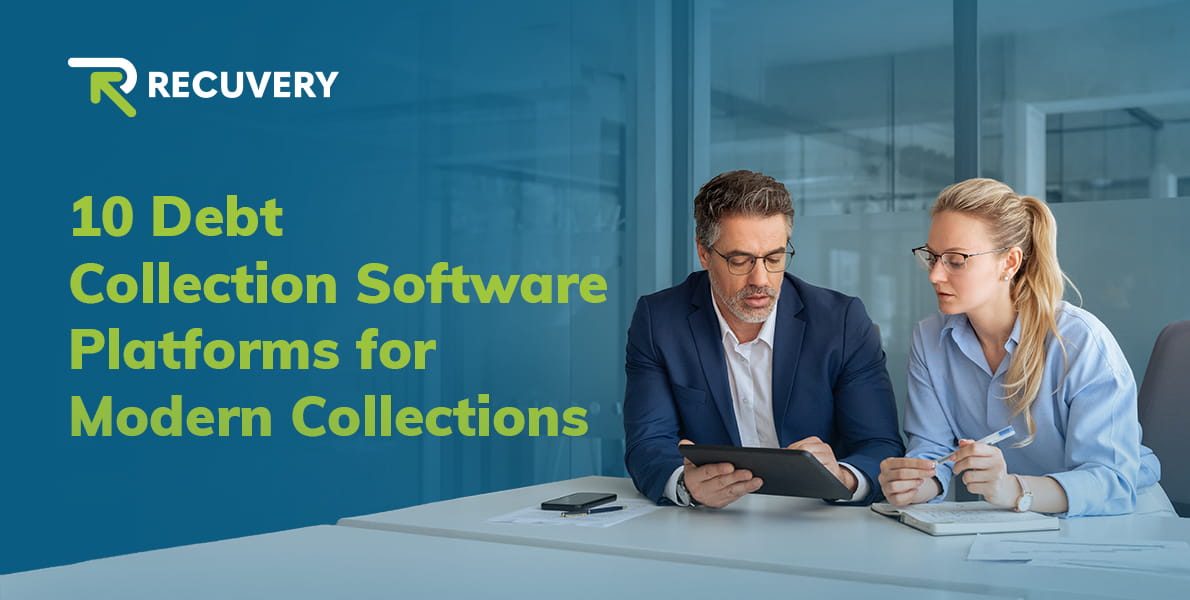Utility Debt Collection: A Complete Guide for Utility Providers

Electricity, water, gas, and waste services aren’t luxuries – they’re the basics that keep life running. But even with the best intentions, it’s easy for people to fall behind on their bills. A sudden job loss, a move to a new address, or simply forgetting a due date can turn a balance into a past-due notice.
For utility providers, missed payments can accumulate quickly, putting pressure on revenue, day-to-day operations, and the ability to deliver reliable service. That’s where utility debt collection comes in. And it’s not just about tracking down payments; it’s about creating a process that recovers what’s owed while maintaining customers’ trust.
In this guide, we’ll walk through how to handle utility debt collection in a way that’s smart, efficient, and rooted in empathy.
What Is Utility Debt Collection?
Utility debt collection involves how providers recover unpaid bills for essential services such as electricity, water, gas, and waste management. These aren’t extras; they’re the basics that keep homes comfortable and businesses running.
When someone falls behind on one or more payments, the overdue balance becomes utility debt. At first, it might not seem like much, but when those unpaid bills pile up, especially across hundreds or thousands of customers, they can put a serious strain on a provider’s cash flow.
Unlike credit cards or personal loans, utility debt usually doesn’t come with interest or a revolving balance. It’s a simple exchange: customers use the service, then pay for what they’ve used. But when the payments stop, providers are left trying to collect money for services they’ve already delivered, and that can be a tricky position to be in.
Utilities Now reports that 32% of Americans struggle to afford their utility bills, and approximately one in six have faced electricity shutoffs due to non-payment.
What Happens When a Utility Bill Goes to Collections?
Utility bills don’t just jump to collections overnight. Usually, it’s after a few missed payments and several reminders that didn’t get answered. It’s a situation utility providers face more often than they’d like, and it’s rarely as simple as someone just forgetting to pay.
Most people don’t plan to skip their bills. Life just throws curveballs sometimes. Some of the most frequent causes include:
- Financial Hardship: Losing a job, facing unexpected expenses, or dealing with rising costs can quickly throw a household’s budget off balance.
- Billing Confusion: In some cases, customers may notice charges that seem inaccurate or have questions about their usage. As a result, they may delay payment until the issue is clarified or resolved.
- Moving Without Updating Info: When someone changes their address but forgets to update their contact details, bills can easily get lost in the shuffle.

Who Takes Care of These Overdue Bills?
Some utility companies handle overdue accounts with their own in-house teams. This way, the communication stays personal, and they can work closely with customers to find the best way forward.
Others bring in specialized third-party collection agencies. This approach can save time and resources, but it can also feel less personal, which means it needs to be done carefully to keep customers feeling respected and valued.
Whether it’s done internally or by an outside agency, the key to successful utility debt collection is finding the right balance between being firm about payments and showing genuine empathy. After all, behind every bill is a person navigating their own challenges, and understanding that makes all the difference.
The Utility Debt Collection Process Explained
Let’s break down the key stages of the utility debt recovery process and what you, as a utility provider, can do at each step to increase collection success while maintaining good customer relationships.
1. Pre-Collection: Proactive Communication Is Everything
The best way to handle utility debt? Stop it before it starts. That means reaching out early with friendly reminders, offering flexible payment options, and keeping the conversation open before things get serious.
Offering customized payment plans isn’t just a kind gesture; it shows you understand and care about your customers’ situations. This type of empathy builds trust and encourages customers to return regularly.
And today, smart AI-powered tools like Recuvery can do a lot of the heavy lifting for you. They automate reminders, communicate across different channels, and even suggest payment plans based on how your customers behave, all without adding stress to your team.
2. Formal Demand Notices: Turning Up the Volume
When gentle reminders don’t do the trick, it’s time to step up the communication with formal demand letters. These are clear, professional messages that spell out what’s owed, the consequences if it’s not paid, and a deadline for response.
It’s important to keep the tone firm but fair; you want to create urgency without causing panic. And always ensure your language complies with legal standards to stay above board.
3. Collaborating with Debt Collection Agencies
If your in-house efforts reach their limit or your team is stretched thin, working with a specialized debt collection agency can be a smart move. Remember, the longer a debt goes unpaid, the tougher it gets to collect. A reputable agency doesn’t just chase payments; they do it professionally, ethically, and with a deep understanding of utility billing.
4. Legal Action: The Last Resort
If everything else fails, legal action might be your final option. But this should never be the first move – it’s time-consuming, expensive, and doesn’t always guarantee recovery.
Legal costs can vary depending on the state and complexity of the case, but they typically range from $1,000 to $2,000 per case. Before you go down that road, consult with a legal expert to understand the likelihood of success and whether it’s worth pursuing.
Legal Considerations in Utility Bill Collections
Here’s a clear guide to the key legal considerations in utility bill collections that every business should know.
| Legal Consideration | Key Points |
| Stay Compliant with Federal Laws |
|
| Provide Clear, Transparent Billing |
|
| Handle Service Disconnections Responsibly |
|
| Use Technology Ethically and Legally |
|
| Be Prepared for Billing Disputes |
|
Challenges in Utility Debt Collection
Getting paid on time is hard enough. But when you’re running a utility business, it’s even trickier. You’re not just chasing invoices; you’re dealing with essential services people rely on daily. Here’s what makes utility debt collection such a challenge today:
➮ Balancing Customer Retention and Revenue Recovery
Utility companies must maintain strong customer relationships while securing prompt payment of bills. Overly aggressive collection efforts can damage trust, while leniency can lead to increased losses.
➮ Regulatory and Compliance Constraints
Strict consumer protection regulations limit how and when collections can occur, especially regarding service disconnections. Navigating these rules adds layers of complexity and slows down recovery efforts.
➮ Inadequate Real-Time Visibility
Without up-to-date insights into customer behavior and account status, companies often miss the opportunity for early intervention, which reduces the effectiveness of recovery.
➮ High Volume, Manual Processes
Managing large numbers of accounts with manual tools increases the risk of errors and delays. A lack of automation can lead to inefficiencies and uncollected revenue.
➮ Limited Flexibility in Payment Options
Customers facing financial difficulties often lack access to tailored payment solutions. Without flexible options, default rates can increase, even among well-intentioned customers.
➮ Disputes and Billing Inaccuracies
Billing mistakes or unclear statements can lead to disputes, delaying payments, and eroding customer trust. Clear communication is essential for steady collections.

Discover How Debt Collection Software Solves Overdue Payment Issues
Read Our GuideBest Practices for Managing Unpaid Utility Bills
Managing unpaid utility bills isn’t just about collecting money; it’s about maintaining a stable business while remaining customer-friendly. With rising financial pressure on households and increasing expectations around convenience, utility providers need to rethink their approach to overdue accounts. Here’s a modern, thoughtful approach to getting it right:
✦ Proactive Communication and Early Intervention
Waiting until a payment is months late doesn’t help anyone. Proactive reminders, like a quick text, email, or call, can make a big difference. The earlier you check in, the easier it is to resolve the issue.
✦ Offer Flexible Payment Plans
Not everyone can pay in full right away. By offering flexible payment plans tailored to their needs, you’re giving people a realistic path to catch up, without stress.
✦ Use Data and Analytics for Customer Segmentation
Not all unpaid bills are the same. Use customer data to group accounts by risk level or behavior. This lets you prioritize where to focus and personalize your outreach, making your efforts far more effective.
✦ Integrate Credit Reporting and Soft Credit Insights
Offering positive reinforcement, like reporting timely payments to credit bureaus, can encourage better habits. And when assessing risk, soft credit checks give helpful insights without hurting the customer’s score.
✦ Partner with a Specialized Recovery Platform
Instead of trying to handle everything in-house, partner with smart platforms that specialize in collections. Tools like Recuvery combine tech and empathy to recover payments without damaging customer relationships.
✦ Stay Compliant with Local Regulations
Regulations governing billing and collections can vary significantly from one region to another. Ensure your procedures follow all relevant rules, particularly regarding disconnection notices and consumer rights.
When to Outsource Utility Debt Collection
Managing overdue utility accounts in-house can work for a while. But as your customer base grows or as unpaid bills start piling up, it might be time to bring in a helping hand. Outsourcing doesn’t mean losing control; it means gaining expertise and resources to recover payments more efficiently, without straining your internal team. If you’re noticing these warning signs, outsourcing might be the right next step:
➧ Your team is stuck chasing payments instead of focusing on core tasks
When collections start taking up more time than serving customers or managing operations, it’s a sign your staff is stretched too thin.
➧ Accounts are aging past the point of easy recovery
The more time that passes without payment, the more challenging it is to recover the outstanding amount. If a significant portion of your unpaid bills is over 60 or 90 days old, it’s time to act.
➧ Your recovery rate is consistently low
If your internal follow-up process isn’t delivering results, specialized support can help recover more, faster.
➧ You’re uncomfortable handling sensitive customer situations
Utility debt can be emotionally charged. Professional agencies know how to communicate with care, avoiding conflict while encouraging resolution.
➧ Your business is growing faster than your billing system
Growth is good, but if your billing or AR team can’t keep up, customers and payments will slip through the cracks.
Benefits of Specialized Collection Platforms Like Recuvery
Choosing a modern, tech-driven collection partner, rather than just a traditional agency, comes with added advantages:
♦ Automation that works 24/7
No more manual follow-ups. Automated systems send reminders, escalate non-payment, and track everything in real-time.
♦ Customer-friendly communication
Recuvery uses empathetic messaging via email, SMS, and phone, designed to recover debt without harming the relationship.
♦ Actionable data and insights
Get detailed reporting that shows what’s working, what isn’t, and where to improve. Smart data leads to smarter decisions.
♦ Compliance you can count on
Specialized providers stay up-to-date with industry regulations and privacy laws, reducing your legal risk.
♦ Integration with your existing systems
Recuvery syncs with your billing software or CRM, so the handoff is seamless and your team stays informed.
Final Thoughts
Utility debt recovery doesn’t have to feel like a battle. With the right process, smart tech, and respectful communication, you can reduce bad debt, protect your revenue, and maintain strong customer relationships, even during tough conversations. As utility needs evolve and customer expectations grow, those who embrace smarter tools, data-driven insights, and specialized partners like Recuvery will be better equipped to recover more, faster, and with less friction.

FAQs
1) Can Unpaid Utility Bills Affect Credit Scores?
Yes, if an unpaid utility bill is sent to a collection agency, it can appear on your credit report and negatively impact your credit score. Some utility providers also report positive payment history, so paying on time can help build your credit.
2) Why Do Utility Bills Go to Collections?
When utility bills stay unpaid for too long—usually after repeated missed or overdue payments—the account may be escalated to collections. Providers generally issue several reminders first, but if the balance remains outstanding, they can transfer the debt to a collection agency for recovery.
3) What Rights Do Consumers Have in Utilities Collections?
Consumers are protected under the Fair Debt Collection Practices Act (FDCPA) and local utility regulations. These rights include being treated respectfully, receiving accurate and transparent billing, disputing charges, and getting proper notice before disconnection. Many states also have rules that prevent shutoffs during extreme weather or for vulnerable households.
4) How Can Utility Companies Reduce the Need for Collections?
By offering flexible payment plans, sending proactive reminders, using automated billing systems, and clearly explaining charges, providers can resolve issues early and reduce overdue accounts.
5) Are Landlords Responsible for Unpaid Utility Bills?
Responsibility depends on the service agreement and local laws. In many cases, if the utility account is in the tenant’s name, the tenant is responsible. However, if the account is in the landlord’s name or bundled with rent, the landlord may be liable for unpaid balances.






